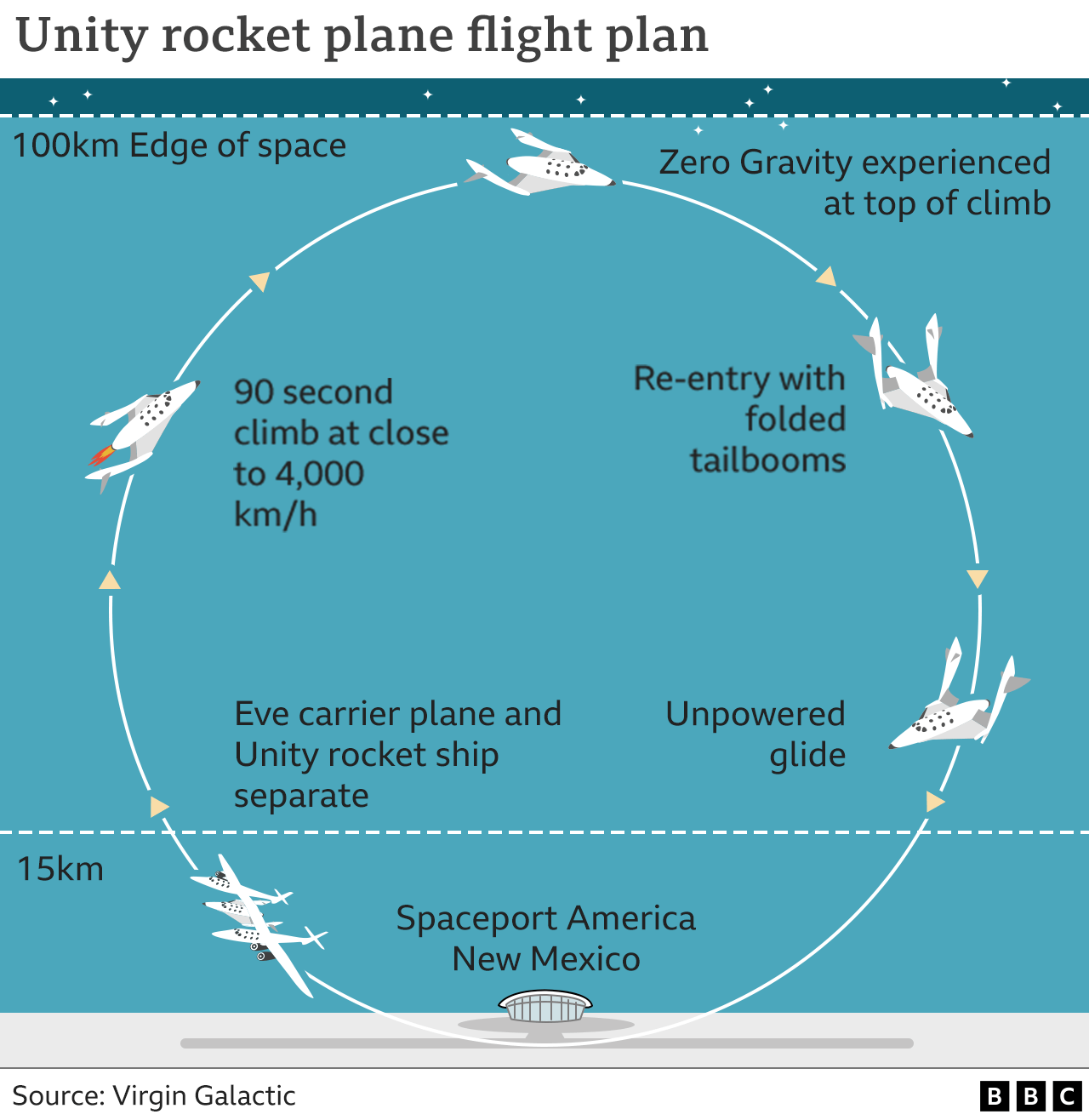A rocket plane is due to fly from New Mexico carrying an 80-year-old British former Olympian, an Aberdeen student and her mother into space.
Anastatia Mayers and her mother Keisha Schahaff won the tickets to board the Virgin Galactic flight in a competition.
Jon Goodwin, from Newcastle, will become the second person with Parkinson’s disease to go to space.
The mission will be seen as another test of how viable space tourism is.
The launch window for the Virgin Galactic 02 flight opens at 08:30 local time (15:30BST). It is Virgin Galactic’s second commercial flight. The first was in June when the Italian Air Force and scientists conducted experiments in weightless conditions on a 70-minute mission.
The rocket is carried on the first stage of its journey on board a carrier plane, known as Eve. It will then aim to ignite its engine and travel to an altitude of 279,000ft (85km).
The advertised price for a place on a Virgin Galactic flight has been as high as $450,000 (£350,000). Mr Goodwin, who competed in the 1972 Olympics as a canoeist, paid $250,000 for his ticket in 2005 but had feared his diagnosis would mean he could not take part.
He said he wanted to prove that his condition – Parkinson’s disease is a condition in which parts of the brain become progressively damaged – did not define him.

Around 100 people will watch him travel into space at a party in Stoke-on-Trent organised by Parkinson’s UK.
Ms Schahaff, from Antigua, was flying to the UK to sort out her daughter’s visa when she entered a competition to join the spaceflight.
She found out months later that she had won two spaceflight seats in the draw.
“Suddenly, who’s walking into my yard? Richard Branson. The whole team just swarmed into my house saying ‘you’re the winner, you’re going to space’,” she said.
Her daughter Anastatia will become the second youngest person to go to space, and says she hopes to inspire others.
“That would be very important to me, both in Scotland and Antigua and anywhere else I have any ties,” she says.
“My intention is to just break any barriers that we set for ourselves or that the world sets for us.
The flight will aim to reach the edge of space, around 85km above Earth, where the passengers will have a few minutes to experience weightlessness.
The spaceship does not have the velocity to complete a full orbit of the globe.
The three customers are the first on a list of 800 or so individuals who have bought tickets for a ride on the Unity rocket.
Some of have been waiting over a decade to get their chance, and most will have a long wait still.
US multi-millionaire Dennis Tito became the world’s first ever space tourist in 2001, paying a reported $20m.
Recently Amazon CEO Jeff Bezos’ space company Blue Origin beat Virgin Galactic in the race to become the first company to take paying passengers into space.
Both companies say their missions further science as well as catering to the very rich, but space tourism has been criticised for its cost and environmental impact.















































